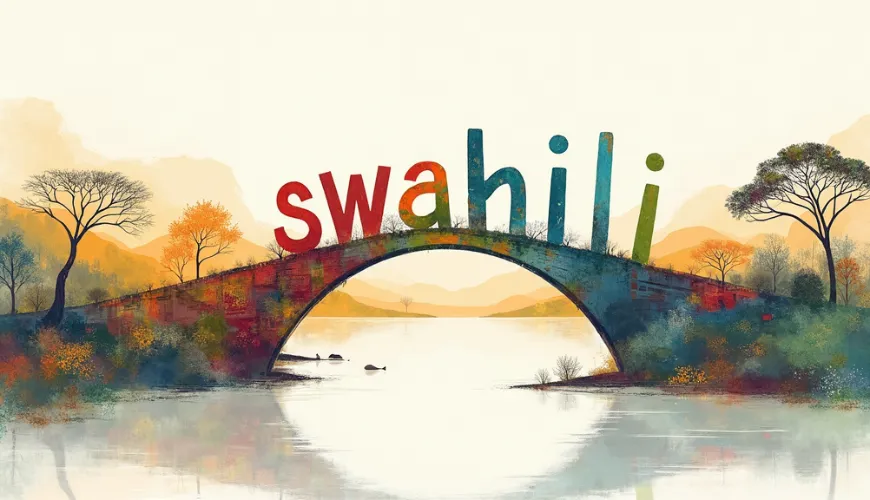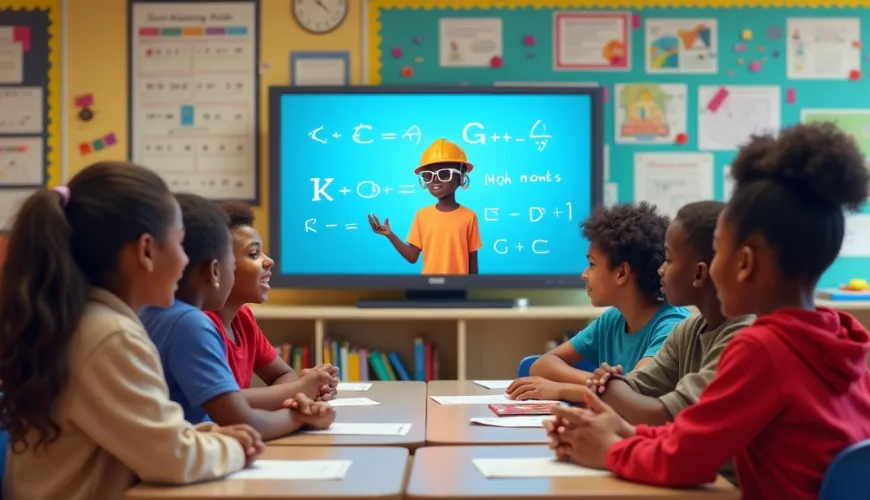TL;DR
Fast, accurate Swahili‑to‑English translation is finally at your fingertips.
AI tools like Claila capture dialects, idioms, and context in real time.
Call a human linguist for legal or culturally sensitive text.
Swahili is a beautiful and expressive language spoken by millions across East Africa. Whether you're planning a trip to Kenya, watching a Tanzanian film, or just curious about African languages, understanding Swahili can open up a whole new world. But what if you don't speak Swahili yet? Thankfully, Swahili to English translation has come a long way thanks to technology—and it's now easier (and faster) than ever to bridge the language gap.
Create Your Free Account
Why Swahili?
Swahili, or Kiswahili, is spoken by an estimated 80 – 200 million people—most scholars converge on "about 100 million” when combining native and second-language speakers—across Kenya, Tanzania, Uganda, the Democratic Republic of Congo, and their neighbours. In 2022, the African Union recognised Swahili as its sixth working language, elevating it to pan-African official-language status. Swahili's profile is rising internationally; charter schools in several U.S. states and a handful of U.K. programmes now include it in their language curricula.
People turn to Swahili English translators for many reasons—travel, business, cultural exploration, or even just for fun. But just like with any language, accuracy and nuance matter. That's where AI comes in.
The Evolution of Swahili to English Translation
In the early 2000s, most translation tools were rule-based, meaning they tried to follow grammar rules and dictionaries to convert one language to another. This worked okay for simple phrases, but it often failed with idioms, slang, or context.
Fast forward to today, and AI translation tools for Swahili have transformed the game. Platforms like Claila harness the power of large language models—like ChatGPT and Claude—to provide fast, accurate Swahili translation that's also context-aware.
Real-Life Example
Let's say someone sends you the phrase: "Ninakupenda sana.”
A decade ago, a basic translator might have said, "I you love very much.” Close... sort of.
Today's AI-powered tools like those on Claila instantly recognize it as "I love you very much”—fluent, natural, and correct every time.
What Makes AI the Best Swahili Translation Option?
Machine learning models have been trained on massive datasets that include real-world Swahili phrases, regional dialects, and even formal writing. This makes them uniquely capable of handling everything from casual conversations to official documents.
AI tools stand out because they grasp context instead of word‑for‑word matches, deliver lightning‑fast results, accept both voice and text, and even adapt to regional dialects that differ between Kenya, Tanzania, and Uganda.
Translate Swahili to English Online—Instantly
Gone are the days of carrying bulky phrasebooks or second-guessing Google Translate. With platforms like Claila, you can translate Swahili to English online in seconds.
Whether you're chatting with a friend from Nairobi or trying to understand a Swahili song lyric, all you need is a browser and a few clicks. Claila offers seamless integration with top-tier models like Claude, Mistral, and Grok—making translations not just fast but smart.
When Should You Use Online Translators?
Use an online translator for day‑to‑day tasks such as reading Swahili social posts, replying to WhatsApp messages, skimming East‑African news, or double‑checking homework exercises; in all these micro‑moments, instant AI output is more than sufficient.
Just type or paste your text into the AI tool, and the English version appears almost instantly.
Choosing the Best Swahili Translation App
When picking a best Swahili translation app, you'll want to keep a few things in mind. Accuracy is key, but so is ease of use, offline access, and even voice features.
When you evaluate an app, look for an intuitive interface, an offline mode for patchy connections, voice input for hands‑free use, live two‑way conversation support, and solid handling of slang or idioms.
Apps like Google Translate offer basic support, but for deeper and more fluid translations, Claila's integration with smarter AI models makes a big difference.
The Role of AI in Accurate Swahili Translation
AI doesn't just translate—it understands. This is especially important for languages like Swahili, where meaning can change based on tone, context, or even the time of day.
For instance, "Shikamoo” is a respectful greeting to elders. A basic translation might skip the social nuance and just say "hello.” But AI models trained on cultural context will translate it more accurately, perhaps even noting the level of respect it conveys.
This level of detail matters in both personal and professional settings. Imagine presenting to a Swahili-speaking business team and calling their regional dialect "just Swahili.” An AI tool sensitive to those subtleties can help you avoid awkward missteps.
Popular AI Tools for Swahili to English Translation
A number of platforms now offer AI translation tools for Swahili, but not all are created equal. If you're looking for reliable and nuanced translations, Claila is a standout.
Claila connects you to multiple models—ChatGPT for chatty, coherent prose, Claude for detail‑oriented nuance, Mistral when speed matters most, and Grok from xAI for real‑time comprehension—so you can switch engines with a single click.
Each model brings something unique, but all of them aim to make Swahili-English translation smoother and more natural.
Tips for Getting Better Swahili Translations
To get the most out of your AI translator, follow these simple tips:
Write full sentences so the model can see the context, keep slang to a minimum unless it is essential, double‑check spelling, and punctuate properly—these tiny tweaks lift accuracy dramatically.
And always double-check the result. While AI has come a long way, it's still wise to do a quick review—especially if the stakes are high, like legal or formal content.
Navigating Noun Classes and Dialects
Swahili contains 15 – 18 noun classes (linguists group them slightly differently), a feature that surprises English speakers because a single English noun class is split into many in Swahili. For example, mtoto (child) belongs to the M‑WA class, while kiti (chair) sits in the KI‑VI class; verbs and adjectives must agree with those classes. Modern AI resorts to transformer attention layers that track this agreement pattern instead of rote memorisation, so phrases stay grammatically intact.
Regional variation matters too. Tanzanian news outlets use a purist register promoted by Baraza la Kiswahili la Taifa (BAKITA), whereas Nairobi youth often mix English loanwords to create Sheng. Claila's context‑aware engine can recognise "Niaje bro” as an informal "What's up, bro?” rather than a literal query about intent (nia).
When to Hire a Human Linguist
No AI can yet notarise legal contracts or certify medical dossiers. If consequences are high—court filings, clinical trials, heritage poetry—the safest route is a professional Swahili linguist who can interrogate sources, annotate cultural subtext, and assume legal responsibility. Think of AI as step one for speed, and humans as step two for total precision.
Why Claila is a Smart Choice
Claila isn't just a translator—it's a productivity partner. By offering access to multiple AI models in one place, you get flexibility and power without needing five different apps. Whether you're writing, translating, creating images, or just exploring ideas, Claila makes it easier to get things done.
It's also constantly updated with the latest AI improvements, so you'll always be ahead of the curve. No more relying on outdated dictionary apps that miss the mark.
Trusted by Language Learners and Professionals Alike
According to Language Insight, the demand for accurate, AI-powered translation tools is growing fast—especially for African languages like Swahili[^1]. More people are learning Swahili than ever before, and tools like Claila are helping them do it efficiently and correctly.
[^1]: Language Insight. "Top Language Trends 2024.”
Whether you're a student, a traveler, or someone with Swahili-speaking family, having the right translation tool can make all the difference.
Whether you are plotting a safari route with our ai-map-generator, conjuring a fantastical beast in mythical-creature-generator, designing a manga hero via ai-manga-generator, or naming your new virtual pet with the ai-animal-generator, it all starts with crystal-clear Swahili to English translation. Next time you order food in Dar es Salaam or text friends in Nairobi, let Claila's smart assistant handle the language so you can focus on the adventure.
And if you decide to go beyond translation—say, scheduling daily Swahili practice sessions, summarising East-African news, or even generating AI-based flashcards—Claila lets you move seamlessly from language learning to wider productivity without leaving the same browser tab.



